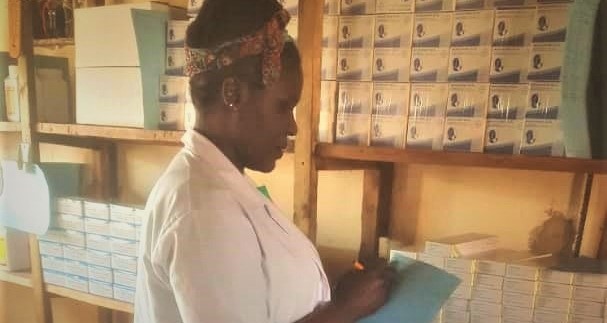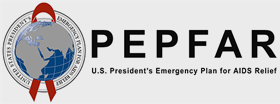
As a pharmacist at Mwense District Health Office in Luapula Province, Zambia, Ngonga Mwansa counts stock and ensures that health facilities and pharmacies have adequate supplies of family planning and reproductive health commodities.
But Mwansa realized that clients weren’t getting what they needed. Not only did they lack a full range of choices, but contraceptives were running out. While there were plenty of stocks at the district level, they were not reaching service delivery points along with other health commodities because they were only being delivered in small quantities, resulting in stockouts.
Mwansa, with support from district health office management and the USAID Global Health Supply Chain Program-Procurement and Supply Management (GHSC-PSM) project, began lobbying hard to change the delivery system. As a result, the health office allocated more resources for fuel to increase deliveries using a third-party logistics system supported by GHSC-PSM.
As a result, the more frequent, larger deliveries resulted in adequate supplies of contraceptives and other health commodities that lasted until the next month’s delivery. These deliveries also decreased overstocks at the district level.
“We now have specific monthly transport arrangements to distribute all health commodities to ensure commodity security at service delivery points,” Mwansa said.
GHSC-PSM works to ensure an uninterrupted supply of quality family planning commodities. Access to voluntary family planning and reproductive health services is vital for safe motherhood and healthy families. Enabling couples to have a full choice of modern contraceptives allows them to plan and space births and ensures that families have the means to properly care for their children.
Since GHSC-PSM began in 2017, it has provided technical supportive supervision to build the capacity of Ministry of Health staff like Mwansa to improve their supply chain management skills. It has also assisted in strengthening the supply chain for procuring and distributing family planning and reproductive health products worth approximately $4.9 million to more than 3,000 USAID-supported facilities in Zambia. These include implantable, injectable and oral contraceptives, intrauterine devices, and female and male condoms.
The contraceptives delivered as of April 2020, when combined with proper counselling and correct use, are estimated to provide approximately 1.4 million couple years of protection and to help avert 520,000 unintended pregnancies, 712 maternal deaths, 153,000 abortions and 13,000 child deaths in Zambia. These investments in contraceptives have the potential of saving approximately $39.9 million in direct spending on healthcare—resources that can be reinvested in Zambia’s health system.


